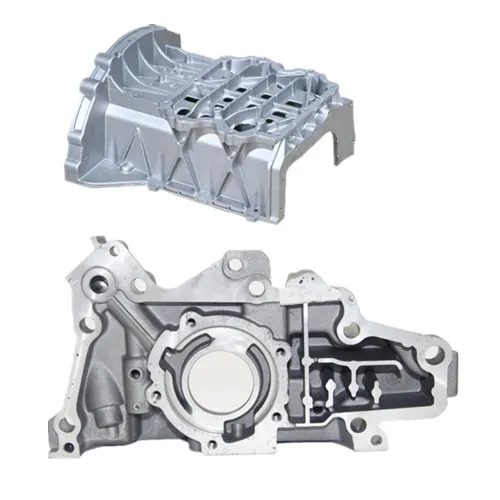Mobile:+86-311-808-126-83
Email:info@ydcastings.com
Creative Techniques for Crafting Personalized Casting Molds for Unique Designs and Projects
Custom Casting Molds The Art and Science of Precision Manufacturing
In the realm of manufacturing, custom casting molds have emerged as a crucial component in the production of complex and intricate components. Casting, in general, is a process that involves pouring liquid material into a mold to solidify into a desired shape. When tailored to specific requirements, custom casting molds can significantly enhance product quality, manufacturing efficiency, and ultimately, customer satisfaction.
The Importance of Customization
Standardization serves many industries well, but there are instances where off-the-shelf solutions fall short. Custom casting molds provide a unique solution to this challenge, enabling manufacturers to produce parts that perfectly align with the unique specifications of their projects. Whether for automotive components, aerospace applications, or intricate designer items, the ability to create molds tailored to specific designs and performance characteristics sets custom molds apart.
Customization in casting molds not only improves the fit and finish of a product but also allows for innovations that cater to specific market demands. For instance, a manufacturer seeking to produce a lightweight automotive part may require a mold that supports the intricate geometry and weight specifications of the part. Custom molds make it possible to accommodate these specific needs effectively.
Materials and Techniques
The selection of materials and the techniques utilized in creating custom casting molds are pivotal. Materials such as aluminum, steel, and specialized alloys are commonly used, each offering distinct advantages in terms of durability, heat resistance, and production volume capabilities. The choice of material often depends on factors such as the projected number of castings, the complexity of the part, and the thermal properties required for the specific application.
Techniques like 3D printing have revolutionized the creation of custom molds. 3D printed molds allow for rapid prototyping, reducing lead times and costs associated with traditional molding processes. This innovative approach not only accelerates the design process but also allows for testing and iteration before final production—ensuring that any issues are addressed early in the development stage.
Benefits of Custom Casting Molds
custom casting molds

The benefits of using custom casting molds extend beyond enhanced shapes and sizes
. Among the key advantages are1. Improved Accuracy Custom molds are designed to meet specific tolerances and specifications, resulting in parts that fit together seamlessly and function as intended.
2. Reduced Waste Tailored molds minimize excess material usage and reduce scrap rates, leading to more economical production.
3. Enhanced Quality With better control over the manufacturing process, custom molds often produce higher quality parts with fewer defects.
4. Increased Production Efficiency Customized molds can be optimized for speed and efficiency in production, allowing for faster turnaround times without compromising quality.
Applications Across Industries
Various industries benefit from the advancement of custom casting molds. The automotive sector takes advantage of them for producing lightweight, fuel-efficient components. The aerospace industry uses custom molds to create parts that meet rigorous safety and performance standards. Even the medical field employs custom molds for producing specialized devices, ensuring compatibility with unique patient needs.
Conclusion
Custom casting molds represent a fusion of art and science in modern manufacturing. Through the use of advanced materials, innovative techniques, and a focus on specific requirements, these molds empower manufacturers to produce high-quality parts efficiently and effectively. As industries continue to evolve and demand ever more intricate designs with lower costs and faster production times, the role of custom casting molds will only grow more significant. Embracing this technology not only enhances operational capabilities but also drives innovation in product development, making it an invaluable asset in the competitive landscape of manufacturing.
-
Why Should You Invest in Superior Pump Castings for Your Equipment?NewsJun.09,2025
-
Unlock Performance Potential with Stainless Impellers and Aluminum End CapsNewsJun.09,2025
-
Revolutionize Your Machinery with Superior Cast Iron and Aluminum ComponentsNewsJun.09,2025
-
Revolutionize Fluid Dynamics with Premium Pump ComponentsNewsJun.09,2025
-
Optimizing Industrial Systems with Essential Valve ComponentsNewsJun.09,2025
-
Elevate Grid Efficiency with High-Precision Power CastingsNewsJun.09,2025











